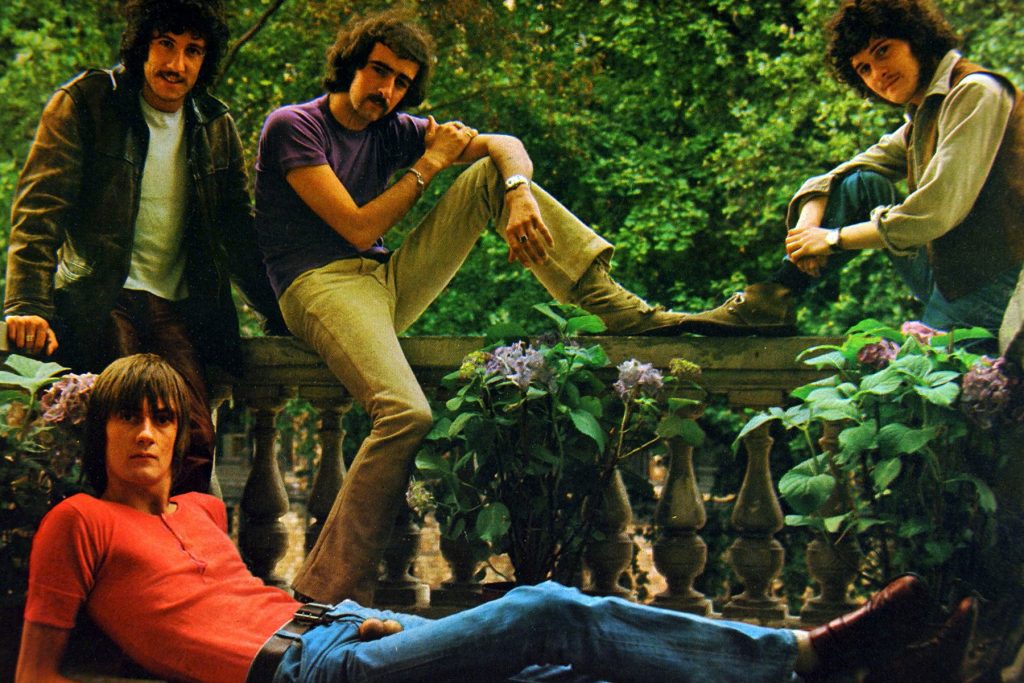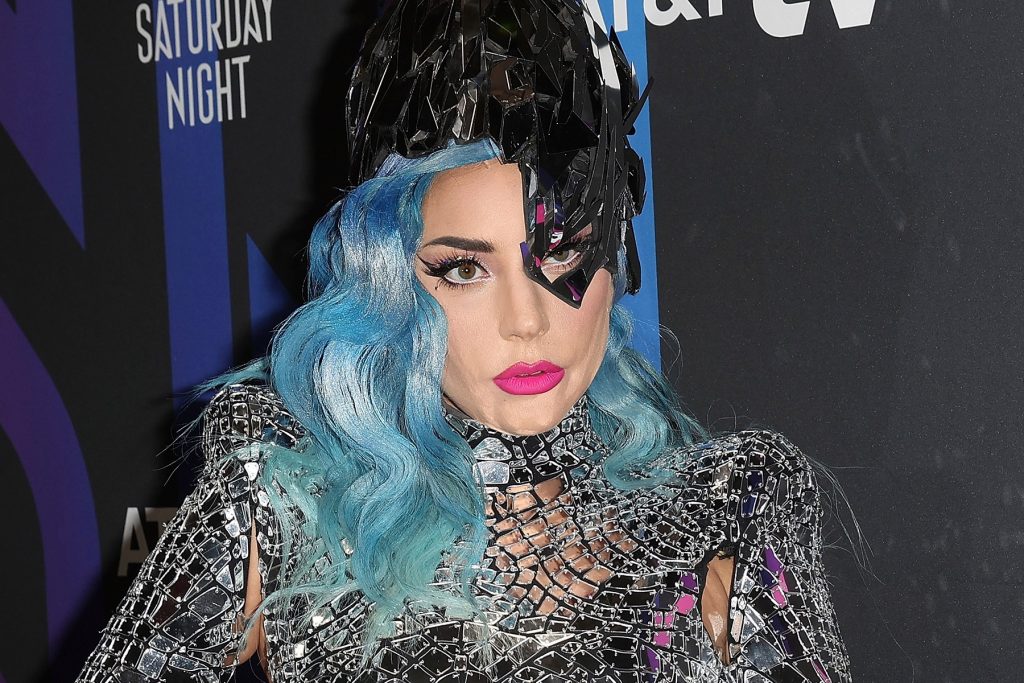
Vintage Fleetwood Mac Resurfaces with Revival of Blue Horizon Label
Last week, Fleetwood Mac’s Christine McVie walked back comments to the BBC that the band might tour again, but without Stevie Nicks or John McVie. As she told IndieLand, it was a “cheeky answer” to a question about the band’s future and not necessarily true.
But for anyone who’s worked with Fleetwood Mac, the ride has never been an easy one; just ask Mike Vernon, whose British label, Blue Horizon, released the first Mac music back in the late Sixties. As Vernon recalls, guitarist and founder Peter Green was an obvious frontman — to everyone except Green. When the first Mac single — the lean blues shuffle “I Believe My Time Ain’t Long” — arrived in 1967, the group was billed as Peter Green’s Fleetwood Mac. “He got really pissed off,” Vernon recalls. “He said, ‘Don’t put my name on it!’ He didn’t want to be seen as the leader of the band. But how could you be that good of a guitar player, and look that good, and not be the leader?”
Even if Fleetwood Mac’s future as a touring band is up in the air, Blue Horizon has come back strong. The label, which not only launched Fleetwood Mac but released records by Christine McVie’s previous band Chicken Shack alongside singles and albums by classic black blues artists, was ground zero for the British blues scene in the Sixties. Now, 50-plus years later, the company has been revived by industry legend and longtime Blue Horizon partner Seymour Stein, working with a new collaborator — Matthew Johnson, co-founder of Fat Possum (the label that, speaking of blues, gave us the Black Keys).
blogherads.adq.push(function () {
blogherads
.defineSlot( ‘medrec’, ‘gpt-dsk-tab-article-inbody1-uid0’ )
.setTargeting( ‘pos’, [“mid-article”,”mid”,”in-article1″,”mid-article1″] )
.setSubAdUnitPath(“music//article//inbody1”)
.addSize([[300,250],[620,350],[2,2],[3,3],[2,4],[4,2]])
;
});
The project also marks a comeback of sorts for Stein. As head of Sire Records starting in the mid-Sixties, Stein signed the Ramones and Talking Heads in the Seventies (among many others); Madonna, the Smiths and the Replacements in the Eighties, and Seal and Aphex Twin in the Nineties. In 2018, Stein retired from Sire (which included his role in the Warner Music Group). “I thought retirement would work, but you know,” he says. “I was not unhappy, but uncomfortable. We want to build a label and bring it back as much as possible. It deserves to be brought back, doesn’t it?”
The revived Blue Horizon launches this week with vinyl reissues of the first three Fleetwood Mac albums: Fleetwood Mac and Mr. Wonderful, both from 1968, and 1969’s The Pious Bird of Good Omen, a collection of singles and B-sides that includes their classic mood-piece instrumental “Albatross” and Green’s “Black Magic Woman,” later remade by Santana. Deep catalog works will soon follow. “Bukka White and some of the other records Blue Horizon put out are really great,” says Johnson. “So of course I said yes. A lot of those records weren’t available and we need to get them out.”
Although it’s been largely forgotten in the States, Blue Horizon carved out a vital niche in its time. Vernon had started the label after making a name for himself at Decca Records, where he began as a go-fer. A self-admitted blues freak, Vernon launched Blue Horizon in 1965 with partner Neil Slaven and began releasing singles, starting with a solo disc by Howlin’ Wolf guitarist Hubert Sumlin. At Decca, Vernon also produced John Mayall’s groundbreaking Blues Breakers with Eric Clapton album and David Bowie’s bizarro quasi-novelty single “The Laughing Gnome.”
When Clapton left Mayall’s band, he was replaced by Green, who soon after departed the Bluesbreakers himself. Green told Vernon he’d formed a blues band of his own and wanted Blue Horizon to release its first records. At that point, Vernon learned that the band was named not after Green but bassist John McVie and drummer Mick Fleetwood. Vernon says he suggested the band be called “Mac Fleetwood,” but realized it would be confusing as it sounded like the name of an actual person. “It was instantly discarded by Peter,” he says, “and he was absolutely right.”
Although the London blues club scene was hardly massive, Fleetwood Mac, featuring Green, Fleetwood, McVie, and animated guitarist and singer Jeremy Spencer, took their white-blues approach seriously and developed a huge following. The pent-up demand for a first album made Fleetwood Mac hit the top 10 in the U.K., which seems almost unimaginable today.
blogherads.adq.push(function () {
blogherads
.defineSlot( ‘medrec’, ‘gpt-dsk-tab-article-inbody2-uid1’ )
.setTargeting( ‘pos’, [“mid-article2″,”mid”,”in-article2″,”mid-article”] )
.setSubAdUnitPath(“music//article//inbody2”)
.addSize([[300,250],[300,251],[620,350],[2,4],[4,2],[3,3]])
;
});
During that early period, Stein and Vernon, both running indie labels, developed a mutual-admiration society, and Stein ended up investing in Blue Horizon at Vernon’s request. Stein was particularly taken with Mac’s early incarnation. “It was amazing how authentic they were,” recalls Stein, who says it was his idea to have Fleetwood Mac record a blues album in Chicago in 1969 with the likes of Buddy Guy and Willie Dixon. “I thought it would be good and they would enjoy it. They were in heaven when they were recording with those [blues] guys.”
Soon enough, Blue Horizon’s roster included Chicken Shack, white blues players like Duster Bennett, America blues pianists Champion Jack Dupree and Eddie Boyd, and guitarist Johnny Shines, along with compilations on B.B. King and Otis Rush. Then known as Christine Perfect, McVie released her first solo album, with its hit U.K. version of Etta James’ “I’d Rather Go Blind,” through Blue Horizon. (Also worth tracking down: Fiends & Angels, the 1969 debut by Puerto Rican wailer Martha Velez, featuring backing by Clapton, Christine McVie and others.)
But the heyday was short-lived. Fleetwood Mac’s contract with Blue Horizon required the label to pick up an option for another record immediately after Mr. Wonderful was released. And in what Vernon calls “an honest mistake,” he and his partners (including his brother Richard) didn’t tend to the paperwork — and paid a devastating price. “The day after the option ran out,” Vernon recalls, “their manager said, ‘I’m sorry to inform you that you didn’t pick up the option, and we’re no longer with your label,’ and that was that.” (In his recent memoir Play On, Fleetwood, who has expressed reservations about the band’s move, called Vernon a “behind-the-scenes player who deserves tremendous kudos for his guidance, not only in our career but for many others in the English blues scene too.”)
Blue Horizon carried on, even scoring a hit with the Dutch band Focus’ insanely inspired prog-yodel hit “Hocus Pocus,” but the label never recovered from the departure of Fleetwood Mac. “It was damaging,” Vernon says. “They were by far the most successful act we had.” By 1972, the blues boom had faded, new acts like Bacon Fat and Jellybread didn’t connect with the public, and Blue Horizon folded.
After Vernon retired, Stein (who released some Blue Horizon albums in the States via Sire) became full owner of Blue Horizon and retained ownership of the name. In 2010, he and legendary producer-songwriter Richard Gottehrer brought the label back; among other projects, they released two gritty blues records by rock pioneer Dion. But after some corporate reshuffling (their distributor was bought by Sony Music), that resurrection came to an end.
blogherads.adq.push(function () {
blogherads
.defineSlot( ‘medrec’, ‘gpt-dsk-tab-inbodyX-uid2’ )
.setTargeting( ‘pos’, [“mid”,”mid-articleX”,”in-articleX”,”mid-article”] )
.setSubAdUnitPath(“music//article//inbodyX”)
.addSize([[300,250],[300,251],[3,3],[620,350]])
.setLazyLoadMultiplier(2)
;
});
The involvement of Johnson, a longtime friend of Stein, and his daughter Mandy Stein, isn’t the only difference this time around. The new Blue Horizon will also involve digital and vinyl reissues from the label’s vaults, which wasn’t the case a decade ago, and the label plans to sign up new acts. In a sign of a potentially eclectic roster, Johnson has already sent a demo of one possible signing — a country act — to Stein for review. Johnson is also hoping Stein will call up “one of the legends on his Rolodex” for the new label as well.
Now based in Spain and a performer in his own right, Vernon admits he didn’t keep up with the later, more successful incarnations of Fleetwood Mac. “I’m sorry Peter wasn’t a part of it,” he says of Green, who died last year at 73. “It was his band, and it would not have happened without Peter.”
But even though he has nothing to do with the new Blue Horizon, Vernon wishes Stein and Johnson well. “Fat Possum are hardcore blues people, and I suspect they’re honest and hard-working,” he says. “I’d like it for it to be successful.”




